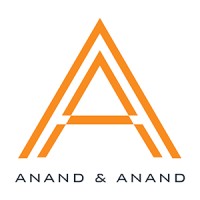‘First published on LEXOLOGY’
By: Swati Sharma
Freedom of speech and expression, is a fundamental right under Article 19 (1) (a) of the Indian constitution. Not an absolute right, the same is subject to reasonable restrictions such as those imposed in the interest of sovereignty and integrity of India, security of the state, friendly relations with foreign states, public order, decency and morality, contempt of court, defamation and incitement.
Freedom of speech and expression has been globally regarded as one of the most significant rights. In a world of social media, where news and information is broadcasted instantaneously, freedom of speech takes precedence over any other fundamental right.
But how does this right impact brands, trademarks, brand owners and companies? The answer is very clear.
Adidas AG terminated its partnership with rapper and fashion designer Ye on October 25 after he made a series of antisemitic remarks, resulting in him losing his “billionaire” status from the Forbes listing.
In the meantime, only as a matter of interpretation of Kanye’s remarks, what happens to the brand value of Yeezy branded sneakers, where several private banks had estimated that Yeezy is a $4 billion – $5 billion brand. In March 2021, a UBS valuation estimated that the brand adds approximately $3-4 billion to the rapper’s net worth. Now whether the brand value erodes or whether the sneakers, now a collectible/ limited in existing circulation (and hence more valuable?) is a question that time will answer.
While we wait for the YE story to unfold, there are many precedents that clearly indicate that brand owners are quick to react to any reaction by their brand endorsers which is likely to jeopardise their brand image and ethos.
In November 2015, Bollywood superstar Aamir Khan in an interview casually indicated that he contemplated moving abroad with his family. Quickly to react to Aamir’s free expression of his plans was the online major retail Snapdeal that decided not to renew its contract with the superstar. He also ceased to be the ambassador for the government’s ‘Incredible India’ tourism campaign.
A very old and classic example of 2010 also affirms that brand owners are quick to react to their sponsor’s personal lives, comments, speeches and public behaviour. Sponsors quickly fled from Tiger Woods upon hearing about his alleged wife cheating incident and Woods apology on live television was clearly not enough to hold on to deals with Tag Heuer, Gillette, Accenture, AT&T and Gatorade. Similarly, Sharon Stone, caused a furore in 2008 when she claimed that a massive earthquake in southwest China, which left nearly 88,000 people dead or missing, was “bad karma” for Beijing’s treatment of Tibet which prompted Christian Dior to immediately drop her from its skincare ads. Sharon Stone also apologised for her comments later but her remarks had already caused her the damage.
Clearly, as a brand endorser, one needs to be conscious of reflecting their personal beliefs and preferences on social media and public forums. Brand owners as shown here are very quick to alienate themselves from any views of their endorsers which are questionable.
On the flipside, in early 2022, when Novak Djokovic said that he would rather miss out on future tennis trophies than be forced to get a Covid vaccine and he said missing competitions, such as the French Open, over his jab status was “the price that I’m willing to pay”, Djokovic’s sponsors, including French automaker Peugeot, clothing brand Lacoste and Swiss watch maker Hublot, remained intact. He has $30 million worth of endorsement deals, according to Forbes, making him among one of the highest-paid athletes in the world.
The phrase “your freedom ends where my nose begins” has many interpretations in the world of instant news through social media. So where does one draw the boundary to one’s personal beliefs and ideology and its impact on brands and endorsement deals? The pendulum swings both ways.
 etc. whilst wrongfully claiming to be part of our firm and making false claims and allegations.
etc. whilst wrongfully claiming to be part of our firm and making false claims and allegations.